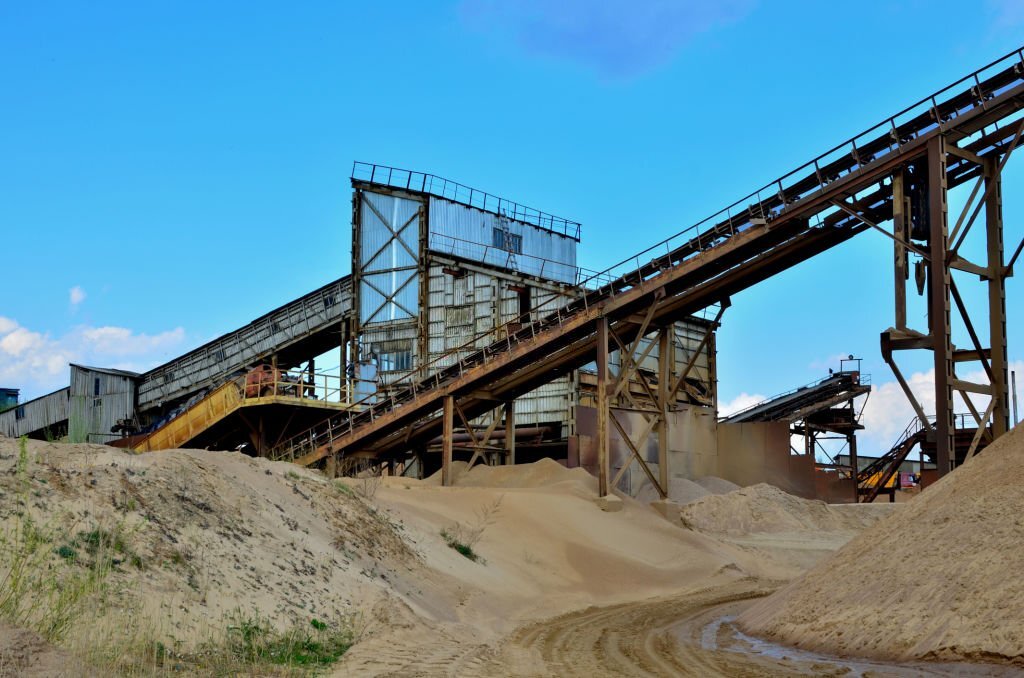In today’s fast-paced industrial landscape, efficiency, cost-effectiveness, and product quality are paramount to the success of any operation. One technology that has proven invaluable in achieving these goals is crushing and screening equipment. These versatile machines offer a multitude of advantages that can significantly benefit a wide range of industries, from mining and construction to recycling and agriculture. In this article, we’ll delve into the key advantages of using crushing and screening equipment in your industrial processes.

1. Enhanced Efficiency:
One of the most notable advantages of using crushing and screening equipment is the substantial increase in operational efficiency. These machines are designed to process large quantities of materials swiftly and continuously. By automating processes that would otherwise be time-consuming and labor-intensive, businesses can significantly boost their productivity. Whether it’s crushing rock, sorting aggregates, or screening soil, these machines get the job done efficiently.
2. Cost Reduction:
Efficiency improvements often translate directly into cost reductions. By automating material processing tasks, businesses can lower labor costs and reduce the need for manual intervention. Moreover, modern crushing and screening equipment is designed with energy efficiency in mind, which further contributes to cost savings. Reduced downtime due to equipment reliability and maintenance ease also play a pivotal role in reducing operational costs.

3. Quality Control:
Crushing and screening equipment allows for precise control over the size and quality of the end product. This is especially crucial in industries where product consistency and uniformity are paramount, such as construction and manufacturing. With adjustable settings and real-time monitoring, operators can ensure that the output meets the required specifications, leading to improved product quality and customer satisfaction.
4. Versatility:
Crushing and screening equipment is highly versatile, making it suitable for a wide array of applications. Whether you need to process rock, gravel, concrete, or other materials, these machines can adapt to various tasks. Their mobility, compactness, and ability to work in diverse environments make them indispensable tools for industries ranging from mining to demolition.
5. Environmental Benefits:
Modern crushing and screening equipment often incorporate eco-friendly features. These include reduced emissions, noise levels, and dust suppression systems. By using such equipment, businesses can minimize their environmental impact and comply with increasingly stringent regulations, all while maintaining efficient operations.

6. Increased Safety:
Safety is a top priority in industrial settings. Crushing and screening equipment is designed with safety features to protect operators and workers. These include remote control operation, automatic shutdown systems, and ergonomic designs that reduce the risk of accidents and injuries.
Revolutionizing Industrial Operations: The Power of Crushing and Screening Equipment
In today’s rapidly evolving industrial landscape, efficiency, cost reduction, quality control, and streamlined material processing are the cornerstones of success. Industries ranging from mining and construction to recycling and agriculture have witnessed a transformation in their operational capabilities, all thanks to the utilization of cutting-edge crushing and screening equipment. In this article, we will explore how this technology is revolutionizing industrial operations across the globe.
Efficiency Redefined:
Efficiency is the lifeblood of any industrial operation, and crushing and screening equipment is at the forefront of enhancing it. These machines are engineered to process vast quantities of materials swiftly and continuously. By automating processes that were once labor-intensive, businesses can dramatically boost their productivity. Whether it’s crushing rock, sorting aggregates, or screening soil, these machines consistently deliver efficient results, allowing operators to achieve more with less effort.
Cost Reduction:
Enhanced efficiency isn’t just about doing more—it’s also about doing it more cost-effectively. Crushing and screening equipment often lead to substantial cost reductions. These machines automate material processing tasks, significantly reducing labor costs and minimizing the need for manual intervention. Furthermore, modern equipment is designed with energy efficiency in mind, resulting in lower operating costs. Reduced downtime due to equipment reliability and ease of maintenance also play a pivotal role in reducing operational expenses.
Quality Control at Its Best:
In industries where product consistency and uniformity are paramount, such as construction and manufacturing, quality control is non-negotiable. Crushing and screening equipment enables precise control over the size and quality of the end product. With adjustable settings and real-time monitoring, operators can ensure that the output meets the required specifications, leading to improved product quality and enhanced customer satisfaction.
Material Processing Made Easy:
One of the primary functions of crushing and screening equipment is the efficient processing of raw materials. Whether it’s breaking down large rocks into smaller, manageable sizes or sifting through aggregates, these machines excel at material processing. Their versatility and adaptability make them indispensable tools across various industries, from mining to demolition.
Boosting Production:
Increased efficiency, cost reductions, and improved quality control inevitably result in heightened production levels. By integrating crushing and screening equipment into their operations, businesses can meet growing demands and capitalize on market opportunities. These machines play a pivotal role in meeting production targets, enabling companies to stay competitive and seize growth prospects.
In conclusion, the advantages of using crushing and screening equipment in industrial operations are multifaceted. Enhanced efficiency, cost reduction, improved quality control, versatility, environmental benefits, and increased safety make these machines invaluable assets for various industries. By harnessing the power of this technology, businesses can stay competitive, increase productivity, and ensure the highest quality of their products while minimizing their environmental footprint.

